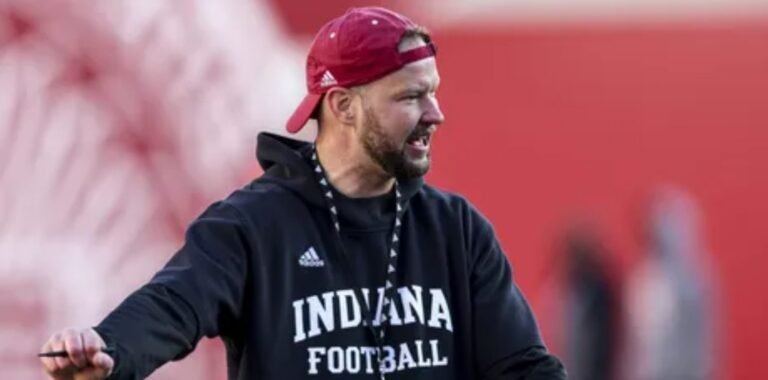Indiana University’s football program recently made headlines with the announcement that defensive coordinator Bryant Haines had agreed to a reworked contract, a move that signals both an investment in his leadership and a growing recognition of the challenges faced by the team. For those closely following IU football, this decision carries weight not only due to Haines’ role but also in light of the program’s recent struggles.
Haines, who joined the Hoosiers’ coaching staff in 2021, took over a defense that had been underperforming in comparison to its Big Ten peers. The defense, often criticized for its inconsistency and inability to stop high-powered offenses, has faced its fair share of scrutiny. However, under Haines’ guidance, there have been signs of improvement, albeit slower than many anticipated. The reworked contract, which reportedly includes performance incentives and a pay raise, is seen as a reward for Haines’ potential and his efforts to steady the ship.
Indiana’s move to sweeten the deal for Haines is both a vote of confidence and a pragmatic decision to retain a promising coach in a competitive college football landscape. In a conference like the Big Ten, where coaching turnover can be swift and ruthless, retaining continuity in the coaching staff is a strategy that aims to bring stability to a program that has seen its fair share of instability in recent years. With Haines, Indiana hopes to build on a foundation, fostering growth rather than jumping ship too quickly, which can be the temptation for many athletic programs.
However, this contract extension has raised eyebrows in some corners of the fanbase and media. Critics argue that rewarding a coach who has yet to significantly turn the defense around is a sign of misplaced loyalty or, worse, an attempt to appease a fanbase that is growing increasingly impatient with the Hoosiers’ mediocrity. Since Haines took over as defensive coordinator, the defense has shown flashes of promise but has too often been exposed, especially against top-tier competition. Indiana’s defensive lapses in crucial games have cost them wins, and the question on the minds of many is whether Haines is truly the man capable of bringing the Hoosiers to the next level, or if the program is simply treading water in a conference that demands excellence.
The reworked contract also raises questions about the balance of power within Indiana football’s leadership. Was this decision driven solely by head coach Tom Allen’s belief in Haines’ potential, or was it influenced by the pressure of a looming recruiting class and the need to maintain stability? It’s possible that Haines is simply the beneficiary of the program’s need for consistency, rather than a clear indication of his defensive prowess. With several other programs around the country investing heavily in their coaching staff, it’s easy to see why IU would choose to lock in Haines before other suitors come calling.
Ultimately, while the reworked contract could be seen as a step in the right direction for a program looking to stabilize, it remains to be seen whether Bryant Haines will be able to live up to the expectations now placed upon him. Indiana fans, always hungry for success, will be watching closely to see if the decision to sweeten his deal will eventually pay dividends on the field. The Hoosiers’ defense, once a weak link, has the potential to become a strength under the right leadership, but only time will tell if Haines can be the coach to make that vision a reality. The clock is ticking, and Indiana football is at a crossroads where the stakes could not be higher.
